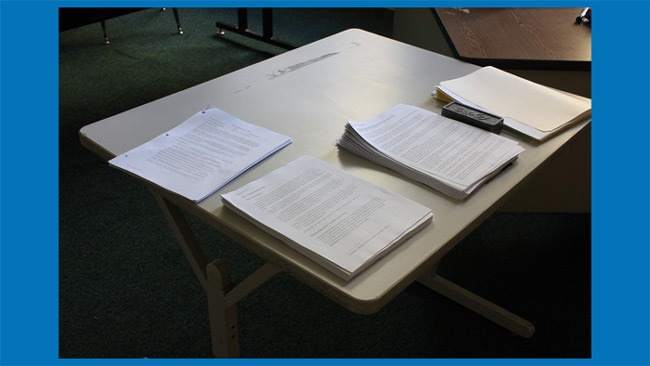How to Get a Job in a Bank After Graduation
We all want to move forward with a dream in our lives. And when we graduate, we are closer to the dream. We have different dreams in our lives. One of them is work. And some prefer bank jobs. Today we are giving you a proper guide on how to get a job in a bank after graduation. Let’s find out step by step.
Step 1: Understand the banking industry
Before applying for a job in a bank, your first step is to thoroughly research the banking industry. Because there are different types of banks. For example, we can say commercial banks, investment banks, credit unions, central banks, etc. You need to research these banks well. Because the mode of operation of these banks is different depending on the department. You better understand in which you feel comfort. Or what skills are you good at?
Step 2: Choosing the right decision
There are many jobs in a bank. Starting from a peon post, office assistant, bank teller, financial analyst, loan officer, relationship manager, officer, etc., you have to choose the right post. These jobs are offered in a bank based on your skills and qualifications. So choose the right term.
Step 3: Build relevant skills
The banking profession is one profession where technology is essential, as is your eloquence and smartness. If we discuss some core skills for a banking career, then it can be said.
3.1 Numerical and analytical skills
We all know that the work of the bank is about work. People who work in this position are usually very skilled and are known to be patient and very patient. So if you want to become a banker, then you have to be skilled and patient.
3.2 Communication skills
There are many investment loan transactions in the bank every day. You should definitely go there with a proper qualification, and your language should be clear. Must have good ability to convince people. Always have a smart inside you.
3.3 Technical skills
You should be familiar with banking software, Excel, and financial modeling tools. If you are not proficient in these subjects, then you must learn them.
Step 4: Gain relevant experience
Internships, part-time jobs, or volunteer positions in finance-related roles can provide valuable experience. Take an internship at a bank or financial institution if you get the chance, even if it’s unpaid, as they offer hands-on experience and networking opportunities. And from this, you become a master. Additionally, participating in finance clubs or organizations at your university can help you build relevant skills and connections.
Step 5: Obtain the required certifications

Now this age is the age of competition. Here you can put yourself ahead of others, and the fields of work are just as easy for you. Like you can do some extracurricular activities and have some extra certificates. That is your own achievement. Sometimes it can be more useful than your graduation certificate. For example:
Certified Financial Planner (CFP):
Useful for those interested in financial planning and advisory roles.
Chartered Financial Analyst (CFA):
Highly regarded for roles in investment banking and financial analysis.
AML Certification:
For those interested in compliance and anti-money laundering roles.
Step 6: Prepare a strong resume and cover letter

Your resume and cover letter are your first impressions with potential employers. Tailor your resume to highlight relevant experience, skills, and accomplishments. Your cover letter should convey your passion for the banking industry, the specific role you are applying for, and how your background makes you an ideal candidate. And from this, those who are in charge of hiring the bank’s work consider many things.
Step 7: Network effectively
Another crucial step in how you get a bank job after graduation is communication or network building. You build a good relationship with the people who work in the bank next to you. You will get a lot of new information from them and benefit from it. Moreover, you also attend industry events, career fairs, and seminars to connect with banking professionals. In the digital age, you can use LinkedIn to find your banking jobs and get ideas. You can contact them, etc.
Step 8: Apply to multiple banks
You set your mind well. Because to work in a bank, you have to go to different places. And that’s what we’re talking about. You don’t just sit around applying to one or two banks. Don’t just apply to banks in your area. You apply at the international level and at your city or state level as well. You don’t even know where your job will end up. So grab the opportunity and stay updated on Banker Jobs Recruitment.
Step 9: Prepare for the interview
This is a tough step for you. Bank job interviews are very smart. Your technical knowledge, your speaking style, your skill, smart everything they will notice within a very short time. Prepare yourself accordingly. And research the types of questions asked in interviews.
Step 10: Be persistent and positive
The job search process can be challenging, especially in a competitive field like banking. Many more candidates like you have applied constantly. So you won’t give up. Be persistent, keep improving your skills, and keep networking. Rejection is part of the process, so stay positive and use every experience as a learning opportunity. Don’t be upset at any rejection. Find your down point and slave it away. Which will help you a lot in getting a banking job after graduation.
Conclusion
Getting a job in a bank after graduation requires a combination of the right skills, experience, and persistence. By understanding the industry, choosing the right role, and preparing effectively, you can increase your chances of landing your desired banking job. Start early, stay focused, and use the resources and tips in this guide to launch your career in banking. I hope you reach your goal. Best wishes to you. thank you
READ MORE : 10 of the best jobs available in Finance: A guide to qualifications and requirements
READ MORE : How many jobs are available in Public Utilities : A comprehensive Guide

